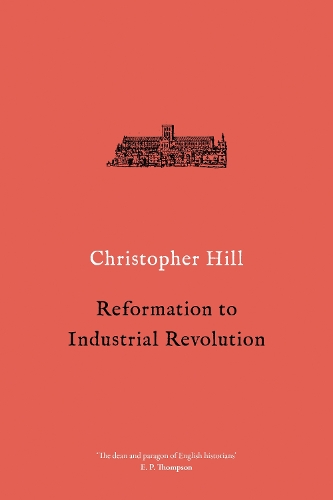
Reformation to Industrial Revolution
(Paperback)
Publishing Details
Reformation to Industrial Revolution
By (Author) Christopher Hill
Verso Books
Verso Books
1st November 2018
United Kingdom
Classifications
General
Non Fiction
Economics of industrial organization
#330.942
Physical Properties
Paperback
304
Width 140mm, Height 210mm, Spine 23mm
377g
Description
In 1530 England was a backward economy, yet by 1780 she possessed a world empire and was just about to become the first industrialized power in the world. This book deals with the intervening 250 years, and tries to explain how England won her unique position in the world. This is a story that opens with the break with Europe and charts the tumultuous period of war, revolutions, and the a cultural and scientific flowering that made up the early modern period. Yet, during this period Britain also become the home to imperial ambitions and economic innovation. Hill excavates the conditions and ideas that underpin this age of extraordinary change, and shows how, and why, Britain became the most powerful nation in the world.
Reviews
"The commanding interpreter of seventeenth-century England." * Guardian *
"The dean and paragon of English historians." -- E.P. Thompson, author of The Making of the English Working Class
The dominant figure in studies of the period. * Daily Telegraph *
Wide-ranging, popular and immensely prolific . the dominant figure in studies of the period. * Daily Telegraph *
Author Bio
Christopher Hill (19122003), born in York, was a historian and academic specializing in seventeenth-century English history. As a young man he witnessed the growth of the Nazi party firsthand during a prolonged holiday in Germany, an experience he later said contributed to the radicalization of his politics. He was master of Balliol College, University of Oxford, his alma mater, from 1965 to 1978. His celebrated and influential works include Intellectual Origins of the English Revolution; The World Turned Upside Down; and A Turbulent, Seditious and Fractious People: John Bunyan and His Church.
